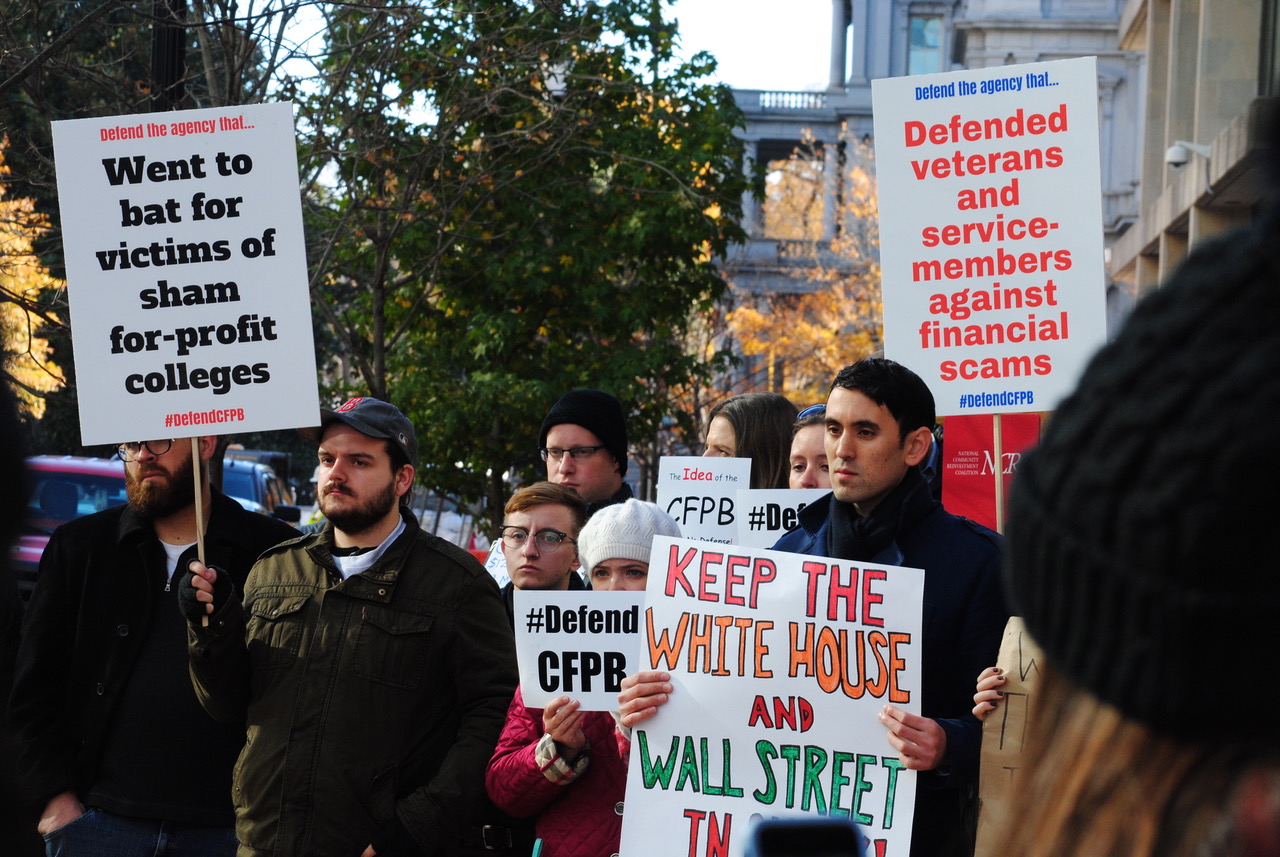
I’m reading the CFPB’s mail about the pandemic’s effect on family finances
I’ve been reading the CFPB’s mail. It’s okay, you can too. It’s public. Not surprisingly, the latest CFPB consumer complaints paint a grim picture of the pandemic’s effect on family finances. I ask: Why isn’t the CFPB doing more to help struggling consumers?

I’ve been reading the CFPB’s mail. It’s okay, you can too. It’s public. Not surprisingly, the latest CFPB consumer complaints paint a grim picture of the pandemic’s effect on family finances. I ask: Why isn’t the CFPB doing more to help the struggling consumers it was designed to help?
The CFPB itself has reported that complaint volume set new records in March, then again in April.
This weekend, I looked at some of the 91,081 complaints posted since March 1.
Credit reporting, which led all complaints to the FTC when I first studied consumer complaints in 1990, continues to lead all complaints to the CFPB. In second place, we find debt collection complaints.
The first CFPB director, Rich Cordray, often called credit reporting, debt collection and loan servicing “dead-end markets.”
“[Consumers cannot] vote with their feet [and] they are unable to exercise the ultimate control of taking their business elsewhere…In these markets, consumers typically cannot choose the company they work with, and when problems arise they often cannot get answers, leaving them frustrated with nowhere to turn. When we see such problems, it is our job to make sure that consumers are treated fairly.”
This week, my colleague Gideon Weissman looked specifically at those mortgage loan servicing complaints in which the consumer mentions the pandemic. His key takeaway: “Mortgage servicers failed Americans during the last recession. And if early data from the Consumer Financial Protection Bureau is any indication, history may well be on its way to repeating.”
A quick look at a few debt collection and credit reporting complaint narratives (where the consumer explains “what happened”) shows that consumers are indeed “frustrated with nowhere to turn.”
- Credit card debt: “Since this pandemic hit the world I like millions of others have been out of work. …When I called bank she said I am sorry about you losing your job but would you like to pay your balance due?”
- Medical debt: “I have asked them to stop calling me since I have a loss of income due to the coronavirus pandemic. They have noted to me that they dont care of the pandemic and I still have to pay. They have told me that they can garnish my wages and seize my property by taking me to court if I dont pay.”
- ID Theft debt: “This is not my debt with XXXX XXXX! … I need you to instruct the 3 major credit bureaus XXXX, XXXX and XXXX to delete and remove this account. It is a pandemic and this company is trying to collect payment from me, when I can’t even collect toilet paper from the store.”
- Medical Debt: “They are stalking me for a bill I don’t owe during a global pandemic.”
- Credit report: “I am aware that we are in an pandemic and extra days have been given to the bureaus additional time to respond. However, they have exceeded 45 days and more.”
This last consumer story refers to an action by the current CFPB director, Kathy Kraninger. She issued guidance granting relief to credit bureaus that don’t follow the law. One of the nation’s leading experts on that law, attorney Chi Chi Wu of the National Consumer Law Center, called the action “shameful.” She added:
“The CFPB’s guidance does not provide one iota of assistance to consumers who are unable to reach their creditors because of long phone hold times, who are too overwhelmed by job losses or dealing with COVID-19 personally or helping afflicted family, or whose creditors are heartless enough to deny them relief.”
The CFPB has taken other actions to help banks and financial companies, not consumers, navigate the pandemic.
This week, several Senators questioned how a mortgage servicing “Borrower Protection” program announced by CFPB and the Federal Housing Finance Agency in April would help homeowners avoid foreclosure. Also this week, former top CFPB enforcement official Diane E. Thompson questioned the CFPB’s issuance of a No Action Letter to a company selling software solutions to mortgage servicers. “This isn’t helping struggling homeowners,” she wrote.
I keep reading the CFPB’s mail. I keep asking myself the same thing. Why isn’t the CFPB doing more to help consumers? They’re reading the same mail. As Rich Cordray, Diane Thompson and another former CFPB colleague, Chris Peterson, wrote in an open letter to Kraninger in March: “It is in difficult times that strong consumer protections are needed the most.”
These are certainly difficult times. But the CFPB could help.
(Cover photo: Protest at the CFPB November 2017, photo by staff.)
Topics
Authors
Ed Mierzwinski
Senior Director, Federal Consumer Program, PIRG
Ed oversees U.S. PIRG’s federal consumer program, helping to lead national efforts to improve consumer credit reporting laws, identity theft protections, product safety regulations and more. Ed is co-founder and continuing leader of the coalition, Americans For Financial Reform, which fought for the Dodd-Frank Wall Street Reform and Consumer Protection Act of 2010, including as its centerpiece the Consumer Financial Protection Bureau. He was awarded the Consumer Federation of America's Esther Peterson Consumer Service Award in 2006, Privacy International's Brandeis Award in 2003, and numerous annual "Top Lobbyist" awards from The Hill and other outlets. Ed lives in Virginia, and on weekends he enjoys biking with friends on the many local bicycle trails.
Find Out More

Apple AirPods are designed to die: Here’s what you should know

New report reveals widespread presence of plastic chemicals in our food

FTC goes after second tax prep firm, H&R BLOCK joins INTUIT TURBOTAX for deceptive claims of “Free tax prep”


